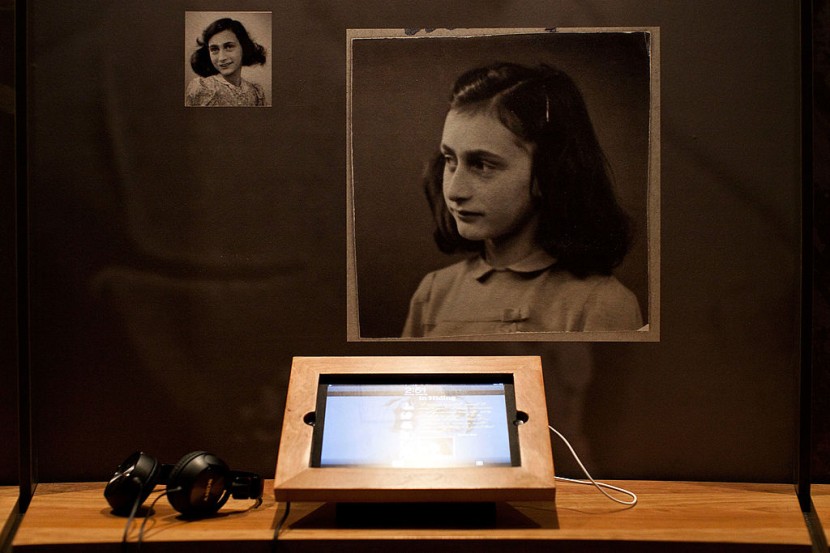
According to a cold case investigation outlined in Rosemary Sullivan's new book, 'The Betrayal of Anne Frank A Cold Case Investigation,' a renowned Jewish businessman may have betrayed Anne Frank a young Holocaust survivor whose posthumously released diary offered the world a taste of what it was like to flee Nazi persecution.
Who betrayed Anne Frank?
The book will be released on Tuesday and will include an investigation undertaken by retired FBI agent Vincent Panoke. In Nazi-occupied Amsterdam, Anne spent two years hiding in a secret annex. Nazis burst in on August 4, 1944, and took Anne's family and four other Jewish individuals who were sheltering there to concentration camps. Only Anne's father, Otto Frank, survived. He found his daughter's journal after the war and had it published in 1947.
Pankoke and his team used current tactics and technology to evaluate the World War II-era case, identifying Arnold van den Bergh, a famous Jewish notary in Amsterdam, as the "most probable" betrayer of the Frank family. He may have done so to keep his family from being sent to a concentration camp, according to Fox News.
According to other experts, the evidence against him was inconclusive. An anonymous message to Anne's father Otto was found in an old post-war inquiry file, specifically mentioning Van den Bergh and suggesting he passed on the information, according to Pieter van Twisk, a member of the investigating team.
According to the message, as a member of Amsterdam's wartime Jewish Council, Van den Bergh had access to places where Jews were hiding and to preserve his own family; and he gave the Nazis lists of similar places. Just four of the initial 32 names remained after the inquiry, with Van den Bergh being the leading suspect. Investigators determined that Otto, the family's lone survivor, was aware of the memo but opted not to speak about it publicly.
Frank's reasons for remaining silent about the allegation, according to Van Twisk, were likely that he couldn't be sure it was true, that he didn't want the information to become public and feed more anti-Semitism, and that he didn't want Van den Bergh's three daughters to be blamed for something their father may have done.
Van den Bergh was fortunate to stay in the Netherlands when other members of the Jewish Council were deported in 1943. In 1950, he passed away. The lengthy inquiry was welcomed by historian Erik Somers of the Dutch NIOD center for war, holocaust, and genocide studies, although he was doubtful of its findings.
Nazi arrest may have stemmed from a Jewish businessman's tip
He questioned the significance of the anonymous message in the case for Van den Bergh's guilt, claiming that the team made assumptions about Jewish organizations in wartime Amsterdam that were not confirmed by other historical studies,as per CNN.
The investigators in the Jew-hunting team who discovered the Franks looked to have a good idea of who they were looking for. However, despite decades of conjecture, two investigations in 1947 and 1967, and a slew of suspects and ideas, we still don't know how they were tipped off.
That is, until today, when a new forensic investigation conducted by a former FBI agent claims to have discovered the solution. The investigators also assign guilt to a fellow Jew, a rich Amsterdam businessman called Arnold van den Bergh, which is arguably the most stunning part.
The manhunt for him began in 2016 when Dutch filmmaker Thijs Bayens and journalist Pieter van Twisk contacted Vince Pankoke, a former FBI agent and cold-case expert from Florida whose long career includes hunting down Colombian drug gangs and 9/11 suspects.
Pankoke volunteered to take on the case after reading Frank's book in school and being inspired by it. Bayens and van Twisk chronicled the case. As a result, a film is in the works, as well as a book - Rosemary Sullivan's The Betrayal Of Anne Frank - that was just released this week.
Pankoke gathered a 23-strong international team, comprising criminologists, forensic scientists, psychiatrists, handwriting specialists, archive researchers, and a rabbi, with funds from the city of Amsterdam and the book deal.
Because all of the witnesses had died, the Amsterdam-based team had to depend primarily on a Microsoft-developed artificial intelligence tool to sift through tens of thousands of pages of government papers for clues. The Nazis insisted on maintaining meticulous records of everything, which turned out to be rather valuable in retrospect, Daily Mail reported.
Related Article: Anne Frank Book Defacer Arrested In Tokyo
@YouTube








